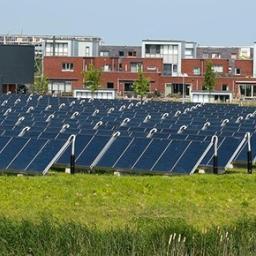Insights from Global Environmental Assessments
Global Environmental Assessments (GEAs) provide policymakers with a knowledge base to address global environmental challenges. They synthesise scientific insights into the current state and future trends of the global environment, assess progress towards internationally agreed environmental goals and explore solutions for achieving these goals. This study synthesises the findings of five recent assessments in the fields of climate, land-use, biodiversity loss and resource use. From these findings, lessons are drawn for Dutch sustainability transitions.
The five assessments are:
- Global Land Outlook: first edition (2017), published by the Secretariat of the United Nations Convention to Combat Desertification (UNCCD).
- Global Warming of 1.5 °C (2018), published by the Intergovernmental Panel on Climate Change (IPCC).
- Global Environment Outlook 6: Healthy Planet, Healthy People (2019), published by the United Nations Environment Programme (UNEP).
- Global Resources Outlook 2019: Resources for the future we want (2019) published by the International Resource Panel of the United Nations Environment Programme (IRP).
- The Global Assessment Report on Biodiversity and Ecosystem Services (2019) published by the Intergovernmental Science-Policy Platform on Biodiversity and Ecosystem Services (IPBES).
A unanimous call for urgent action
The assessments convey a clear and unanimous message: accelerated action and fundamental changes in production and consumption (transitions) are required to halt further environmental degradation and to achieve internationally agreed goals. This message is not new but the timeframe in which to make these changes is shrinking, along with the flexibility in response strategies.
Addressing root causes and policy coherence
Policies should address not only the systems or activities that directly impact the environmental (e.g. energy production and use, agriculture, resource extraction and processing), but also their indirect drivers, or ‘root causes’. These root causes include consumption patterns, population growth, inequality, international trade and finance systems, which are embedded in societal values, behaviour and governance. Furthermore, the strong interrelationships between the environmental challenges call for an integrated policy approach.
Lessons for the Netherlands
Based on the key insights from the assessments, some overall lessons are be drawn for three Dutch sustainability transitions: towards a sustainable energy system, circular agriculture and a circular economy. Increased coherence and further elaboration of the transition agendas is needed. Furthermore, the agendas could put more emphasis on external footprints, consumption change, and equity and inclusiveness. More active use of the concept of overall well-being and the SDGs in national policy-making can improve coherence, as well as contributing to other sustainability objectives and international policy efforts.
Authors
Specifications
- Publication title
- Insights from Global Environmental Assessments
- Publication subtitle
- Lessons for the Netherlands
- Publication date
- 14 September 2020
- Publication type
- Report
- Page count
- 84
- Publication language
- English
- Product number
- 3490




